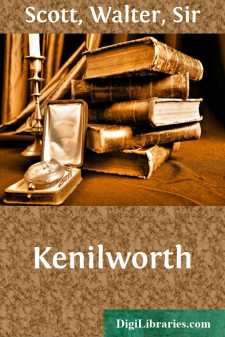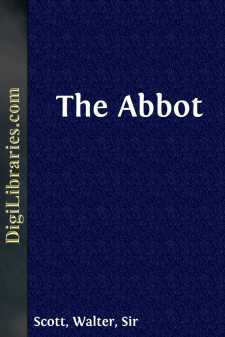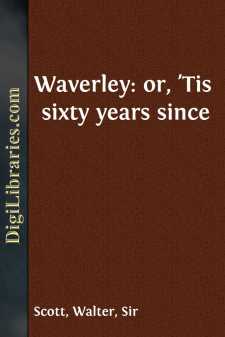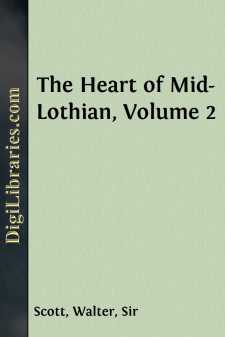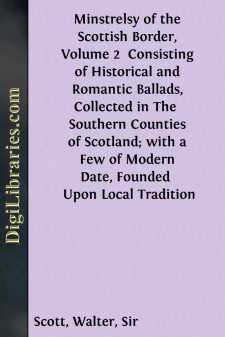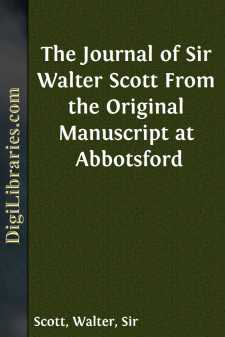Categories
- Antiques & Collectibles 13
- Architecture 36
- Art 48
- Bibles 22
- Biography & Autobiography 813
- Body, Mind & Spirit 142
- Business & Economics 28
- Children's Books 15
- Children's Fiction 12
- Computers 4
- Cooking 94
- Crafts & Hobbies 4
- Drama 346
- Education 46
- Family & Relationships 57
- Fiction 11828
- Games 19
- Gardening 17
- Health & Fitness 34
- History 1377
- House & Home 1
- Humor 147
- Juvenile Fiction 1873
- Juvenile Nonfiction 202
- Language Arts & Disciplines 88
- Law 16
- Literary Collections 686
- Literary Criticism 179
- Mathematics 13
- Medical 41
- Music 40
- Nature 179
- Non-Classifiable 1768
- Performing Arts 7
- Periodicals 1453
- Philosophy 64
- Photography 2
- Poetry 896
- Political Science 203
- Psychology 42
- Reference 154
- Religion 513
- Science 126
- Self-Help 84
- Social Science 81
- Sports & Recreation 34
- Study Aids 3
- Technology & Engineering 59
- Transportation 23
- Travel 463
- True Crime 29
The Fortunes of Nigel
by: Walter Scott
Description:
Excerpt
INTRODUCTION
But why should lordlings all our praise engross?
Rise, honest man, and sing the Man of Ross.
Pope
Having, in the tale of the Heart of Mid-Lothian, succeeded in some degree in awakening an interest in behalf of one devoid of those accomplishments which belong to a heroine almost by right, I was next tempted to choose a hero upon the same unpromising plan; and as worth of character, goodness of heart, and rectitude of principle, were necessary to one who laid no claim to high birth, romantic sensibility, or any of the usual accomplishments of those who strut through the pages of this sort of composition, I made free with the name of a person who has left the most magnificent proofs of his benevolence and charity that the capital of Scotland has to display.
To the Scottish reader little more need be said than that the man alluded to is George Heriot. But for those south of the Tweed, it may be necessary to add, that the person so named was a wealthy citizen of Edinburgh, and the King's goldsmith, who followed James to the English capital, and was so successful in his profession, as to die, in 1624, extremely wealthy for that period. He had no children; and after making a full provision for such relations as might have claims upon him, he left the residue of his fortune to establish an hospital, in which the sons of Edinburgh freemen are gratuitously brought up and educated for the station to which their talents may recommend them, and are finally enabled to enter life under respectable auspices. The hospital in which this charity is maintained is a noble quadrangle of the Gothic order, and as ornamental to the city as a building, as the manner in which the youths are provided for and educated, renders it useful to the community as an institution. To the honour of those who have the management, (the Magistrates and Clergy of Edinburgh), the funds of the Hospital have increased so much under their care, that it now supports and educates one hundred and thirty youths annually, many of whom have done honour to their country in different situations.
The founder of such a charity as this may be reasonably supposed to have walked through life with a steady pace, and an observant eye, neglecting no opportunity of assisting those who were not possessed of the experience necessary for their own guidance. In supposing his efforts directed to the benefit of a young nobleman, misguided by the aristocratic haughtiness of his own time, and the prevailing tone of selfish luxury which seems more peculiar to ours, as well as the seductions of pleasure which are predominant in all, some amusement, or even some advantage, might, I thought, be derived from the manner in which I might bring the exertions of this civic Mentor to bear in his pupil's behalf. I am, I own, no great believer in the moral utility to be derived from fictitious compositions; yet, if in any case a word spoken in season may be of advantage to a young person, it must surely be when it calls upon him to attend to the voice of principle and self-denial, instead of that of precipitate passion....




